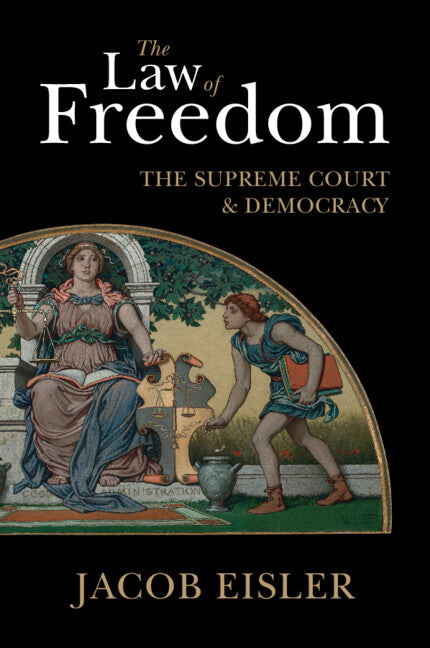Freshly Printed - allow 8 days lead
Couldn't load pickup availability
The Law of Freedom
The Supreme Court and Democracy
Examines election case law to demonstrate and assess how the Supreme Court has radically transformed American democracy.
Jacob Eisler (Author)
9781108412247, Cambridge University Press
Paperback / softback, published 20 July 2023
300 pages
22.9 x 15.2 x 1.8 cm, 0.498 kg
'Eisler draws on important doctrines in the the philosophy literature to inform what had been an intractable debate about the legitimacy of judicial review over the democratic process. The book is a must read for anyone seeking a theoretically sound justification for why the interests of the people must be paramount when courts resolve questions implicating democratic design, rights, and governance.' Franita Tolson, University of Southern California Gould School of Law
The Supreme Court has been at the center of great upheavals in American democracy across the last seventy years. From the end of Jim Crow to the rise of wealth-dominated national campaigns, the Court has battled over if democracy is an egalitarian collaboration to serve the good of all citizens, or a competitive struggle by private interests. In The Law of Freedom, Jacob Eisler questions why the Court has the moral authority to shape democracy at all. Analyzing leading cases through the lens of philosophy and social science, Eisler demonstrates how the soul of election law is a battle between two philosophical understandings of democratic freedom and popular self-rule. This remarkable book reveals that the Court's battle over democracy has shaped how Americans rule themselves, marking election law as the most dramatic judicial intervention in constitutional history.
Introduction
1. The counterpopular dilemma
2. Constitutionalism and the counterpopular dilemma
3. Traversing the dilemma: normative struggle over freedom
4. One-person one-vote: the triumph of minimal procedural equality
5. Campaign finance: contesting voters' cognitive capacities
6. Parties in democracy: facilitators or usurpers of popular self-rule?
7. Race and elections: equality of access or equality of power?
Conclusion: the debate over liberalism, the partisan alternative, and the future of election law.
Subject Areas: International law [LB]


